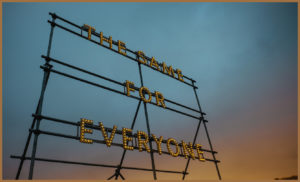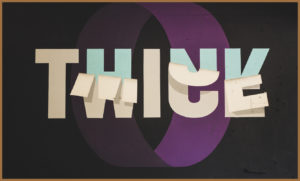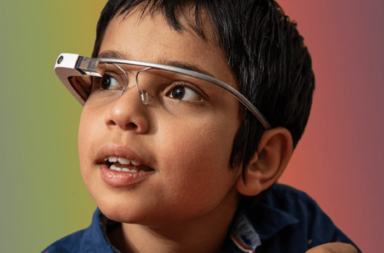‘We’re all a little bit autistic’, ‘Everyone is on the spectrum’, ‘All of us have autism to a degree’. The chances are that, if you’ve hung around the autism community long enough, you’ve likely heard someone make one of these statements that suggest that, while it’s all good and well paying researchers to monitor autism rates, the reality is that we were all autistic all along.
Of course, in reality, none of this is true, after all, if we were all a little bit autistic then why would autistic advocates need to fight for awareness? However, like all good myths, all of these phrases stem from cold hard fact which is why, today, I want to get to the root of these rumours as I ask the question ‘Is everyone on the autism spectrum?’
[Please note that the majority of today’s article is not representative of my opinion and instead states facts with inflections of my experiences in the hope of sparking a discussion in the comments found at the bottom of this page]

Is Everyone on the Autism Spectrum?
Yes – as ludicrous as it may sound, it really is possible to say that we are all on the spectrum, at least according to a 2016 Havard published research paper. As findings from said publication make claims and identify proof that the same genes which can cause social difficulties in people with autism also exist and have an influence on the vast majority of the population.
As Dr Elise Robinson: lead author on the paper states, this confirms the speculation on whether everyone is on the spectrum, as there currently is no set cut off point for when social issues begin being classed as autism, just ‘like trying to pick a point where you say someone is tall or not’.
No – On the other hand, this does not exactly line up with the technical term of ‘what is a spectrum condition’. As, while most consider the autistic spectrum to be just a series of random quirks which vary in prominence between person to person, the autistic spectrum is actually more of a list: filled with similar conditions which overlap in many different ways e.g. atypical autism, Asperger’s and previously Rett syndrome – until that got the controversial boot after the discovery of its impact on the MeCP2 gene (although that’s a conversation for another day – after I’ve worked out what the ‘MeCP2’ gene even is).
This means that, while you may consider yourself as being on the spectrum for having similar quirks to someone who is autistic, to actually be on the spectrum you must have one of the full autism conditions – not just a kind of ‘autism-light’.

Are We All a bit Autistic?
Yes – While we are still a long way from being able to diagnose autism with 100% certainty, according to the most recent medical manual the DSM-5 (as well as early drafts of the soon to be released ICD11), to be diagnosed as autistic, people must meet criteria relating to two key areas ‘deficits in social communicational ability’ and ‘restrictive/repetitive behaviour patterns’.
For these reasons, many have made the claim that ‘we are all a bit autistic’ as, while not everyone has a hard time in social situations or has as burning a desire for routine as autists, most people do possess these qualities to a degree – for example: being introverted, misjudging social protocol or, if you’re my girlfriend, having an encyclopaedic knowledge of the Gilmore Girls.
No – However, while it may be possible to say that someone is a little bit autistic because they demonstrate similar signals of the condition, a true diagnosis of autism is rooted in how these aspects impact on a person’s life. For example, while you may get a bit shy out in public, someone who is autistic can feel a very real, very painful anxiety. While similarly, that hobby or interest which you spend so much time thinking about is, in all probability, just a way to unwind. For an autist it’s a lifeline; something to make sense of an unpredictable world, as well as an obsession which gets lodged in our brain and calls out for us to devote all our time and energy to it.
Simply put, saying someone is a little bit autistic because they share traits with autism is the same as calling someone a bit of a surgeon because they once removed a splinter. It’s technically true, but that doesn’t mean I would want them operating a heart transplant any time soon.

Should we say ‘Everyone is on the Spectrum’?
Yes – despite there being such a mixed bag of truths when it comes to the everyone is on the spectrum myth; the phrase has still managed to become quite popular. This isn’t because people want to show off their attempt at science though as, in my experience, it is used to show unity between those who aren’t on the spectrum and those who are.
Loneliness is a huge problem within the autistic community, with many autists feeling isolated as, sadly, they believe our perspective makes us ‘abnormal’ and without a place in the world. As such, when people say ‘everyone is on the spectrum’ it isn’t trying to devalue our experiences but is said to demonstrate a willingness to empathise or to try and make autistic people feel welcome where they might previously have not.
No – Good intents aside, there are many people on the autistic spectrum who can feel like we are having our experiences belittled or devalued when someone says that we are all on the spectrum (despite being clearly not). This is because it can trivialise the challenges we face on the spectrum as though we are saying we have just climbed Everest and your response is ‘who hasn’t?’
Furthermore, one of the largest objections autists have to the ‘everyone is on the spectrum’ conversation is that, the moment someone utters these words, it often feels like that person has closed their mind off to the possibility of learning more about autism. After all, to them all 7.5 billion people who are both on the planet and on the spectrum are doing just fine, so why do adjustments need to be made for the few diagnosed autists who are calling out for change?

Do I believe that Everyone is on the Spectrum?
Personally, I feel like there is something to be said for both opinions. However, if someone is autistic and discussing the challenges they are facing, it’s better to just lend an ear than try and sympathise with a myth full of half-truths.
Even within the autistic community, I will never use my experiences of being autistic to judge or manipulate someone else’s, as the complete variance of how autism impacts on us all means that, even as an autist myself, my opinions and experiences are so different to others that it would be damaging to assume everyone is like me.
This doesn’t mean people should stop trying to empathise with autists though. But maybe next time, instead of saying ‘We are all on the spectrum‘ try saying something like ‘I see where you’re coming from’ or ‘I’ve experienced something similar’. It still sends the same message (and is equally as presumptuous) but it doesn’t carry the same risk of backfiring and causing more harm than good.

Carry on the Conversation:
Where do you stand on the ‘Everyone is on the spectrum’ debate? This is one of those conversations where I am fascinated to hear each and every response. So let me know your thoughts in the comments below. And, If you want to hear more controversial discussions from the world of autism, then head on over to my article on The Autism Puzzle Piece Debate: Is it Time for a New Logo?
As always, I can also be found on Twitter @AutismRevised and via my email: AutisticandUnapologetic@gmail.com.
If you like what you have seen on the site today, then show your support by liking the Autistic & Unapologetic Facebook page. Also, don’t forget to sign up to the Autistic & Unapologetic newsletter (found on the sidebar on laptops and underneath if you are reading this via mobile) where I share weekly updates as well as a fascinating fact I have found throughout the week.
Thank you for reading and I will see you next Saturday for more thoughts from across the spectrum.


